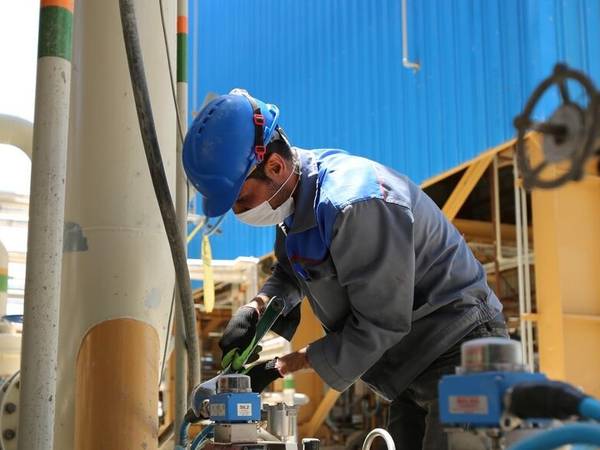Iran’s export of petrochemicals not impacted by United States sanctions, the government’s news website IRNA has claimed following fresh sanctions by Washington.
IRNA on Saturday called recent US sanctions on several companies involved in exporting Iran’s petrochemicals, as simply “a show”, insisting that Iranian companies are well-versed in circumventing US sanctions.
The website interviewed Mohammad Eslami, the general manager of Mehr petrochemicals, established in 2005 and apparently not on the US sanctions’ list. Eslami said US sanctions have not changed much since 2018, when former president Donald Trump withdrew from the Obama-era nuclear deal, JCPOA, and imposed tough sanctions on Iranian oil and petrochemical exports.
“Regardless of which companies or individuals are listed, or not listed, in the sanctions’ list, Iran’s petrochemicals sector is sanctioned, and has to resort to irregular ways for exporting its products,” Mohammadi said.
The US Thursday sanctioned Chinese, Emirati and Iranian firms over exporting Iran's petrochemicals on June 16, linking it with Iran’s willingness to return to the JCPOA.
“Absent a deal, we will continue to use our sanctions authorities to limit exports of petroleum, petroleum products, and petrochemical products from Iran,” a statement by Secretary of State Antony Blinken said after the Treasury Department announced the sanctions,” Secretary of State Antony Blinken said.
Mohammadi argued that all petrochemical firms must operate within the confines of US sanctions and the new penalties on some companies facilitating exports will not make a difference. He added that Iranian companies are well-versed in sanctions issues and use their knowledge to export petrochemicals.
However, a clear and publicly announced US intent to tighten the noose will have a deterrent effect on non-Iranian businesses or individuals thinking of doing business with sanctioned companies.
Also, when sanctions are enforced, the cost of exporting the products increases for Iran, reducing profits. Middlemen involved in arranging and disguising shipments, as well as payments demand higher commissions and sometimes the products have to be sold cheaper to entice buyers to take a risk.
Mohammadi conceded that US sanctions have caused problems, but he insisted that exports have continued since 2018. He added that the new US measures were meant to be psychological pressure on Iran amid an impasse in the nuclear talks.
Indeed, figures published by the Iranian government show around $20 billion of export revenues from petrochemicals last year, which is a substantial amount for the cash-strapped economy.
IRNA once again reminded its readers that Biden Administration officials in the past have “confessed” that US sanctions have failed to pressure Iran. In January, the State Department spokesman defending the administration’s negotiations with Iran to revive the JCPOA insisted that Trump’s ‘maximum pressure’ policy against Tehran had failed.
Amid serious financial crisis, the Iranian government media regularly tries to publish material that could calm the people and the markets. The IRNA article on petrochemical exports is no exception.
Another report in Fars news website affiliated with the Revolutionary Guard on Saturday tried to reassure the public about the strength of Iran’s currency rial, saying that the currency is regaining strength after last week’s precipitous fall against the US dollar. However, exchange rates on Saturday showed the rial struggling near it all time high of 330,000 to one US dollar.
